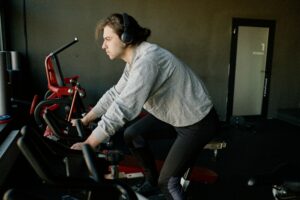The Ultimate Guide to Post-Workout Recovery

What you do after your workout is just as important as the workout itself. Proper recovery enables your body to repair muscles, replenish energy stores, and adapt to the training stimulus. Here’s everything you need to know about optimizing your post-workout recovery.
Why Recovery Matters
Contrary to popular belief, your muscles don’t grow during your workout—they grow during recovery. Exercise creates micro-tears in muscle fibers, and with proper nutrition and rest, these tears repair and rebuild stronger than before. Skimping on recovery can lead to plateaus, overtraining, and even injury.
Post-Workout Nutrition Essentials
The Anabolic Window
While the traditional 30-minute “anabolic window” may not be as critical as once thought, consuming protein and carbohydrates within 1-2 hours post-exercise is still beneficial for optimal recovery, especially for those training fasted or multiple times per day.
Protein Requirements
Aim for 20-40g of high-quality protein after your workout. This provides the amino acids necessary for muscle repair and growth. Whey protein is often recommended due to its rapid digestion and complete amino acid profile, but plant-based options can be equally effective when properly formulated.
Carbohydrate Timing
Carbohydrates replenish muscle glycogen stores depleted during exercise. For strength training, 30-40g of carbs post-workout is typically sufficient. For endurance exercise lasting over 90 minutes, higher amounts (60-100g) may be beneficial.
Hydration and Electrolytes
Rehydrating is crucial, especially after intense or sweaty workouts. A good rule of thumb is to drink 16-24 oz of fluid for every pound lost during exercise. For longer sessions, electrolyte replenishment becomes important—look for beverages containing sodium, potassium, and magnesium.
Recovery Supplements Worth Considering
While whole foods should form the foundation of your recovery nutrition, certain supplements can provide additional benefits:
- Tart Cherry Juice: Contains anti-inflammatory compounds that may reduce muscle soreness
- Creatine Monohydrate: Supports muscle energy replenishment and protein synthesis
- BCAAs: May reduce muscle breakdown during training, especially when training fasted
- Magnesium: Supports muscle relaxation and proper nerve function
Rest and Sleep Strategies
Quality sleep is your most powerful recovery tool. Aim for 7-9 hours nightly, with special attention to sleep hygiene around training days. Consider these strategies:
- Maintain consistent sleep and wake times
- Avoid screens 1-2 hours before bedtime
- Keep your bedroom cool (65-68°F)
- Limit caffeine after mid-day, especially if you train in the evening
Active Recovery Techniques
Rest days don’t necessarily mean complete inactivity. Consider these active recovery methods:
- Light cardio: Walking, swimming, or cycling at low intensity
- Mobility work: Dynamic stretching and range of motion exercises
- Foam rolling: Self-myofascial release to reduce muscle tension
- Contrast therapy: Alternating between hot and cold exposures to improve circulation
Putting It All Together
The most effective recovery strategy combines proper nutrition, hydration, rest, and active recovery techniques tailored to your training intensity and goals. Visit us at ClubFitness to explore our range of recovery-focused supplements that can help you maximize your results and feel better between workouts.


